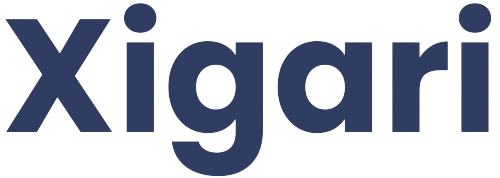From Virtual Reality to Fractional Ownership, Here’s What You Need to Know
Introduction:
As we are in the middle of 2023, the real estate industry is looking to the future and wondering what kind of advancements we can expect to see in the coming year. The industry has weathered a lot of turbulence in the last few years, but technology has been a huge help in supporting all stakeholders. In this article, we’ll look at the five tech trends that could dominate real estate in 2025 and beyond.
Virtual Reality
VR property tour
Virtual reality (VR) and augmented reality (AR) are not new trends, but the pandemic has certainly accelerated their adoption. With restrictions on live showings, many agents and property owners turned to virtual property tours as the next best alternative. According to a Matterport survey, listings with 3D virtual walkthroughs close 31% faster and sell for up to 9% more. Expect to see more and more investors using VR and AR in real estate to streamline their property search and analysis. Virtual tours will also become more common in the rental business as landlords and short-term rental hosts look to attract tenants.

AI-Enhanced Analytics
AI in Real Estate Industry
Artificial intelligence (AI) has been transforming the real estate technology industry for years, and there have been major advancements in recent years. Property investors are now able to find and analyze deals at a rate and speed that was previously unimaginable. In 2023 and beyond, we can expect to see more quantum computing AI being applied in the industry, making it easier to predict trends and patterns.
Transparency and Security (BlockChain)
Blockchain in Real Estate
Blockchain technology has the potential to revolutionize the real estate industry by increasing transparency, security, and efficiency. Here are some ongoing trends and facts related to blockchain in real estate:
- Improved transparency: Blockchain can enable real-time tracking of property ownership, transfers, and transactions, providing a transparent and tamper-proof record of all activities related to a property.
- Enhanced security: By using decentralized and encrypted networks, blockchain can improve the security of real estate transactions by reducing the risk of fraud and cyberattacks.
- Smart contracts: Smart contracts are self-executing contracts that can be programmed into blockchain networks. They can be used to automate the real estate transaction process, reducing the need for intermediaries such as lawyers and real estate agents.
- Tokenization: Tokenization refers to the process of representing ownership of a physical asset, such as a property, with a digital token on a blockchain network. This can increase liquidity, reduce transaction costs, and enable fractional ownership.
- Real-world applications: Several real estate companies and startups are already exploring blockchain-based solutions for property management, rental payments, and investment opportunities.
- Regulatory challenges: Despite the potential benefits of blockchain in real estate, there are regulatory challenges related to property ownership, transfer, and registration that need to be addressed before widespread adoption can occur.
Fractional Ownership
Fractional investment is another trend that’s been growing in recent years, and it’s set to continue. With syndication, real estate investment trusts (REITs), and other forms of partnerships, investors have been able to own shares of real estate assets for decades. However, technology is making it even easier for people to invest in real estate with smaller amounts of capital. In 2023, we can expect to see more PropTech platforms that allow investors to invest in parts of real estate properties, democratizing the real estate market.
The Metaverse
Land in the metaverse
The metaverse is an emerging trend that has been gaining a lot of attention recently. It refers to virtual worlds that are built and maintained by their users. With the rise of blockchain technology, investors can now buy assets in virtual worlds, creating new investment opportunities. The global metaverse real estate market is expected to grow from $821.9 million in 2021 to $5.95 billion by 2028. While it’s still a new concept, it’s something that investors and real estate professionals should keep an eye on in 2023.
Conclusion:
The real estate industry is constantly evolving, and technology is playing a huge role in that evolution. From virtual reality to the metaverse, there are many exciting trends that investors, buyers, sellers, and agents can expect to see in 2023 and beyond. By staying ahead of these trends, everyone in the industry can take advantage of the latest technology to streamline their processes, increase efficiency, and make better decisions. So, get ready to embrace










